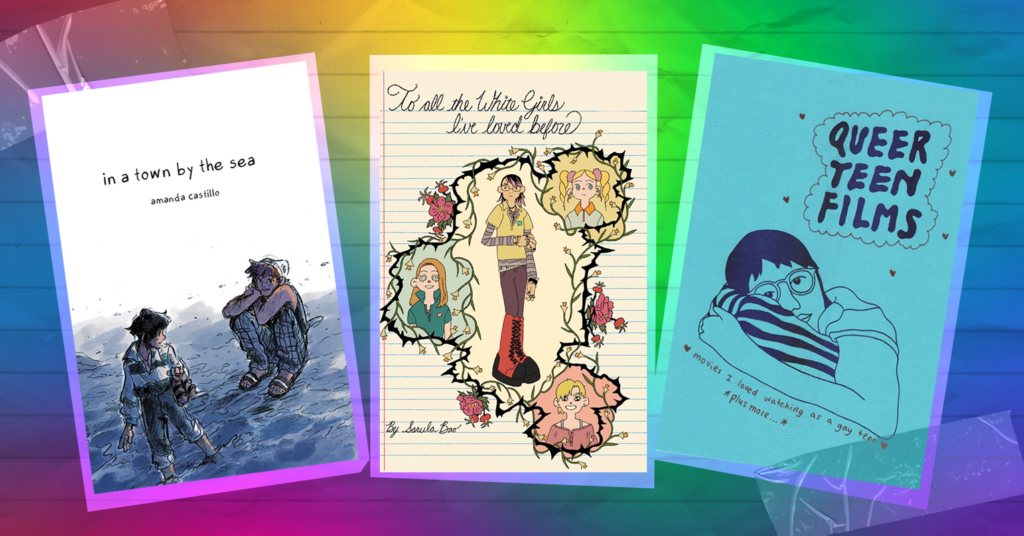Author Spotlight: Author and Scientist Karen Bao on “Pangu’s Shadow,” Intersectionality, and Bridging Identities

For Women’s History Month, EnVi shows extra love to women across the Asian diaspora and beyond, with special features in Fashion, Beauty, Music, Film, and Culture.
Who says you can’t be both a writer and a woman in STEM? Creative writing and experimental lab work may seem to be a counterintuitive combination for many, but Karen Bao has juggled the two daily throughout the past five years.
By day, Bao worked as a Ph.D. candidate in biology at Harvard University; by night, she plopped down with her laptop and wrote about her day at the lab — except with a sci-fi twist and an added murder mystery. Bao found the intersection between the seemingly parallel endeavors by successfully defending her Ph.D. and publishing her newest book, Pangu’s Shadow, this February.
In our latest author spotlight, EnVi sat down with Karen Bao over a Zoom call and chatted about her newest book, publishing, and how science and art intertwine.

Pangu’s Shadow
Pangu’s Shadow is set in a futuristic solar system where humans live among different moons that orbit around a central sun — Pangu. The story alternates between two immigrant science rivals, who work in the same lab. More chemistry immediately sparks when they find themselves framed for the murder of their professor.
Though the overarching plot revolves around the two leads navigating untrue convictions and the queer romance that blossoms between them, Pangu’s Shadow delves into themes of prejudice and injustice. Echoing many sociological issues prevalent in our modern world, misogyny, inequality, xenophobia, and many other present-day realities are woven throughout the narrative to thicken the layers in this book.
On the lighter side, Bao also used the sci-fi setting as a creative backdrop to play around with possible scientific advancements. For example, there is a home AI system that helps a character, and trains run without air resistance.
“In our world, wealthier people have access to not just healthcare, but cleaner air and weather which are environmental impacts that extend their lives. I structured the world of Pangu to reflect this particular class disparity in an extreme way,” explained Bao. Many of the themes above were personally experienced by Bao as a woman working in academia, particularly in STEM.
Asian and a Woman and Queer: Navigating Intersectionality in Both Industries
As someone with intersecting identities, Bao tries not to think too much about her position within the publishing industry.
“It would slow me down to think about how few queer, femme authors of color there are, especially in sci-fi,” said Bao, who navigates representation by surrounding herself with friends of different identities.
For Bao, living with her multitude of identities is like “breathing.” However, it became evident to her during her graduate career that what came to her naturally may not be the same for others. She found herself going through many discriminatory experiences where she was subtly barricaded due to the lack of structural power she had.
Physically disabled from a chronic back injury when she first started at Harvard, Bao had to take breaks from sitting during lectures by squatting on the floor. During a lesson on Darwinism, the lecturer called Bao out by “joking” that she will be “naturally selected out.”
“Nobody in my entire class said anything. Their mouths were agape, but this guy got away with it — that’s just the tip of the iceberg,” Bao exclaimed.
Bao also shared instances of her being stalked to the point of having to do double the normal amount of lab rotations due to feeling unsafe and struggling with getting lab rotations despite coming with free funding.
“All of these experiences got me thinking about who gets to do science, who doesn’t have these barriers in their way. And when you can do science, you’re the arbiter of what’s true in our society,” explained Bao. Pangu’s Shadow is a perfect encapsulation and extended metaphor of these thoughts with (perhaps) hyperbolic elements.
Opposites Attract
Storytelling is the common link between science and creative writing, according to Bao. She compares a scientific experiment to a story with no answer — “The entire adventure is finding out if your hypothesis is right or not,” she described.
A “twist” in the scientific story will happen if the scientist is wrong about their initial assumptions, but then finds something special or interesting.
“In writing, you are in control. In science, the universe is,” Bao stated.
Though seemingly opposites, Bao’s double life as a scientist and author complement each other well. Being an author has helped Bao communicate her ideas to other audiences at conferences or science fairs, whereas being part of the graduate school community has given Bao a group of people to lean on when authors often write solo.
“The most satisfying part about science is discovering something for a brief moment in time before you tell anybody. You’re the only person in the entire world who knows something,” Bao added.
Writing For Yourself
Though Pangu’s many themes are a fictional echo of Bao’s reality, she claims that her messages are “up to interpretation” and does not have a concrete message to deliver to her audiences. In fact, listening to the readers’ interpretations is exactly what she had hoped for — to get people thinking.
“Some readers come away thinking a lot about science, some readers go in thinking about immigration. Some think about capitalism and how it influences academia. People think about queerness and what it means to be truly free,” described Bao, who wrote the book initially without a specific audience in mind.
In fact, some can argue that Bao wrote Pangu with one audience in mind: herself.
Already having The Dove Chronicles series under her belt and having contributed to Ab(solutely) Normal, Pangu’s Shadow marked another major milestone for her: this book is her first to feature a queer romance plot. While Bao felt “free” when she was writing the book, since it was a more accurate echo of her reality, the promotional stages were different.
“I still feel shy letting people read it because it outs me as queer, especially as a Chinese American,” said Bao. For someone who felt like she “did everything she was supposed to growing up,” Bao described her sexuality as the one thing that “wasn’t what the average Chinese American parent would want their kids to be.”
Although Bao’s stories have a lot of representation that reflects her own identities, she knows that her experiences should not be generalized. She often asks beta readers to ensure she is not accidentally doing harm to any communities. To Bao, representation is a natural byproduct of authenticity.
“Publishing is a business that’s based on judging art. So it’s harder by definition to make money off marginalized people’s art because we’re numerically smaller populations,” said Bao, who argues that “publishability” and the quality of your writing are not related.
For writers, especially those from more historically underrepresented backgrounds, creating stories that spring from their unique experiences is exactly what makes them stand out and is the best way to break into publishing.
“Just look for the mundane things that you know that nobody else does,” Bao added.

Spring is the season for midi skirts and reading on a grass field — purchase a copy of Pangu’s Shadow here! To learn more about Bao’s other works (both book and science), check out her website here.
Curious to find more AAPI creatives like Karen Bao? Learn about illustrator Stella Hong here!



